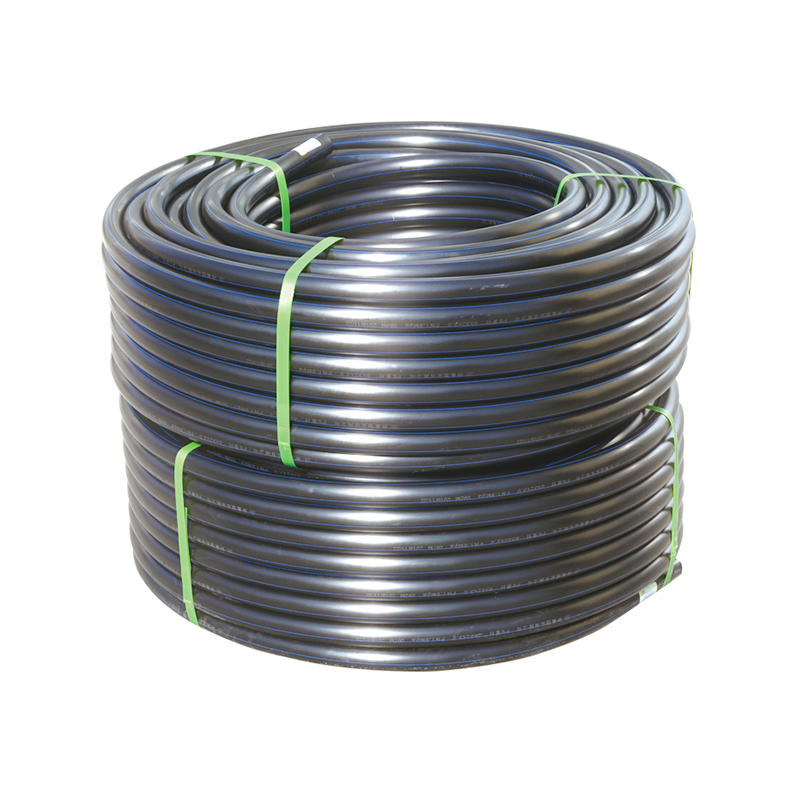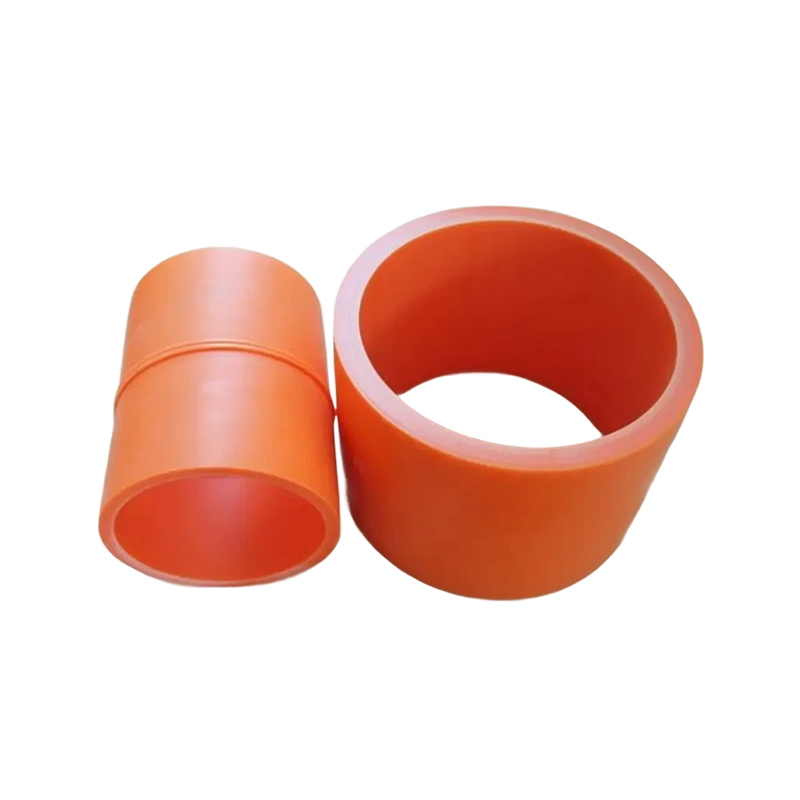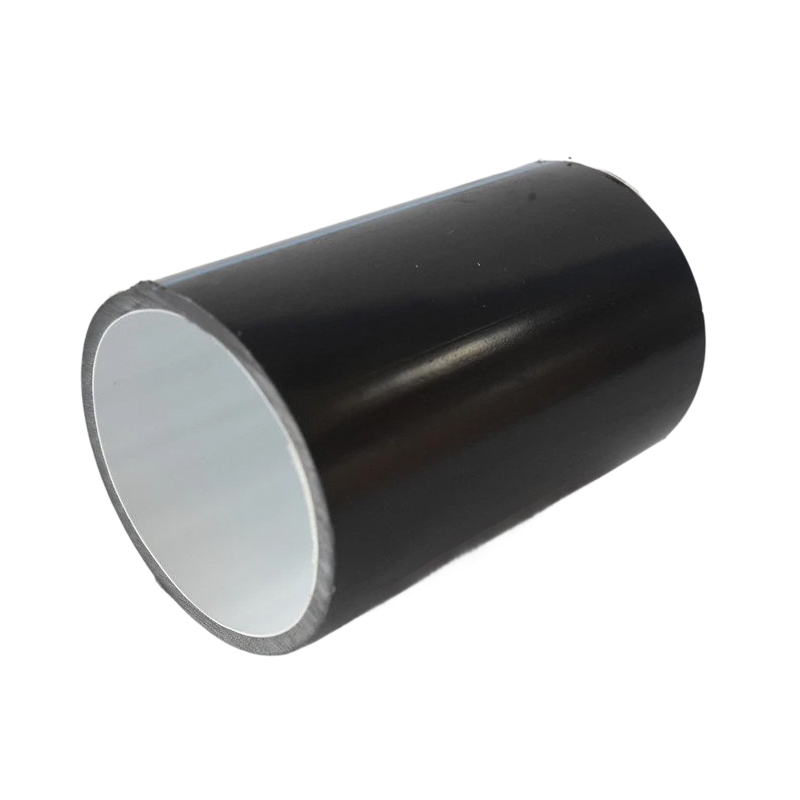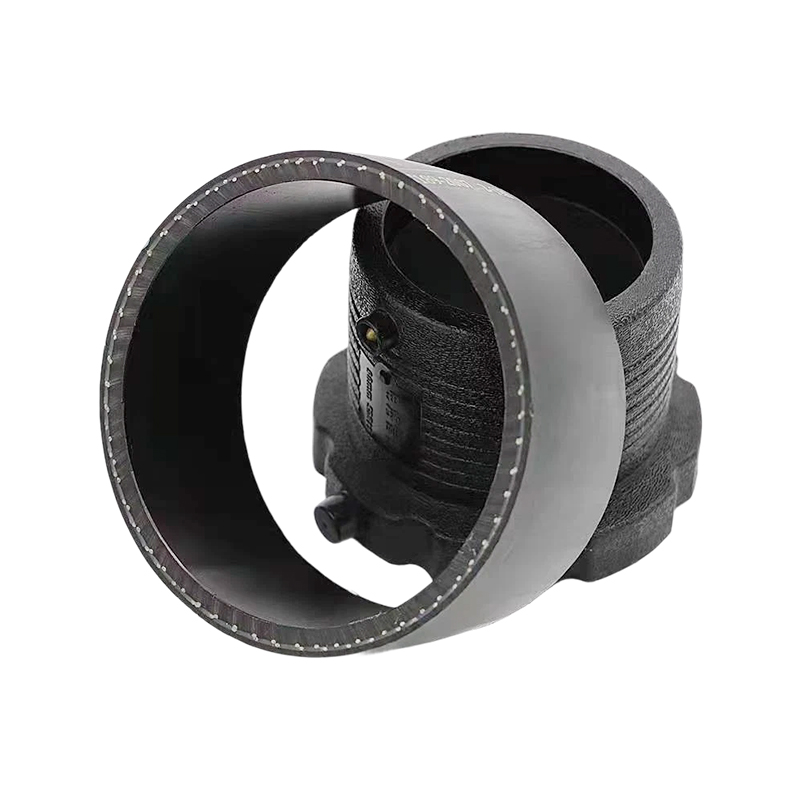How does an unplasticized design impart high rigidity and long-term deformation resistance to PVC pipes?
Release Time : 2025-08-14
In modern urban infrastructure and industrial piping systems, unplasticized polyvinyl chloride (uPVC) pipes, with their superior comprehensive performance, have become a reliable choice for transporting water, chemicals, and gases. They are more than just plastic pipes; rather, they are the product of a deep fusion of materials science and engineering applications. Vinyl chloride monomer is polymerized to form an amorphous thermoplastic resin, supplemented with stabilizers, lubricants, fillers, and other additives, enabling them to operate stably and long-term in harsh environments. This "rigid PVC" not only possesses excellent physical and chemical properties, but its ability to be blended and modified with other resins expands its application in a wide range of sectors, including construction, municipal administration, agriculture, and industry.
The depth of unplasticized polyvinyl chloride pipes lies primarily in the structural advantages afforded by their inherent "unplasticized" nature. Unlike soft PVC, uPVC is manufactured without the addition of plasticizers, maintaining its high rigidity and strength. This makes the pipes less susceptible to deformation when subjected to internal fluid pressure and external soil loads, maintaining a rounded cross-sectional shape over time and ensuring stable fluid transport. Its high elastic modulus effectively resists stress caused by ground subsidence or construction disturbances, reducing the risk of joint leaks. Furthermore, uPVC's low thermal conductivity prevents condensation on its surface when conveying cold or warm water, preventing secondary damage in humid environments. It is particularly suitable for building plumbing systems.
The material's innovative nature is rooted in the synergistic optimization of formulation design and compounding technology. Pure PVC resin is susceptible to decomposition at high temperatures, necessitating the addition of heat stabilizers (such as calcium-zinc complex stabilizers or organotin) to enhance thermal stability during processing and use. Lubricants ensure smooth melt flow during extrusion and reduce internal stress. The addition of fillers not only reduces costs but also improves dimensional stability and UV resistance. More importantly, by blending with other resins (such as chlorinated polyvinyl chloride (CPVC), acrylonitrile-butadiene-styrene (ABS), or polyethylene (PE), unplasticized polyvinyl chloride significantly expands its performance capabilities. For example, blending with CPVC improves heat resistance, making it suitable for higher-temperature hot water systems; blending with ABS enhances impact resistance, making it suitable for industrial environments susceptible to external forces. The material's designability enables precise matching of performance requirements to diverse application scenarios.
More fundamentally, innovation lies in comprehensive improvements to connection technology and system reliability. Unplasticized polyvinyl chloride pipes are commonly connected using either spigot-and-socket adhesive connections or elastic sealing rings, offering simple installation and excellent sealing. Adhesive connections use a solvent-based adhesive to slightly dissolve and fuse the surfaces of the pipe and fitting, forming a rigid, one-piece joint with nearly the same pressure and corrosion resistance as the pipe itself. The flexible joint with double sealing rings allows for a certain degree of axial and angular displacement, accommodating minor foundation settlements and demonstrating excellent adaptability in earthquake-prone areas or soft soils. Furthermore, the inner surface of unplasticized polyvinyl chloride pipes is exceptionally smooth, with a roughness coefficient far lower than that of metal pipes. This significantly reduces the flow resistance along the fluid path, improving delivery efficiency and reducing pumping energy consumption.
The value of unplasticized polyvinyl chloride pipes lies in their lightweight, corrosion-resistant, and low-maintenance properties, which have reshaped the construction principles of modern fluid transportation systems. It resists rust and scaling, effectively resisting corrosion from acids, alkalis, salts, and various organic solvents. It's suitable for use in a variety of complex media, including sewage treatment, chemical plants, and drinking water transportation. Its long lifespan (typically exceeding 50 years) and low lifecycle costs make it an ideal choice for sustainable infrastructure development. In the undercurrents of urban underground and within the pipeline networks of factory floors, uPVC pipes, with their silent tenacity, carry the water of life and the lifeblood of industry, silently demonstrating the profound support that materials technology provides for the operation of human society.
The depth of unplasticized polyvinyl chloride pipes lies primarily in the structural advantages afforded by their inherent "unplasticized" nature. Unlike soft PVC, uPVC is manufactured without the addition of plasticizers, maintaining its high rigidity and strength. This makes the pipes less susceptible to deformation when subjected to internal fluid pressure and external soil loads, maintaining a rounded cross-sectional shape over time and ensuring stable fluid transport. Its high elastic modulus effectively resists stress caused by ground subsidence or construction disturbances, reducing the risk of joint leaks. Furthermore, uPVC's low thermal conductivity prevents condensation on its surface when conveying cold or warm water, preventing secondary damage in humid environments. It is particularly suitable for building plumbing systems.
The material's innovative nature is rooted in the synergistic optimization of formulation design and compounding technology. Pure PVC resin is susceptible to decomposition at high temperatures, necessitating the addition of heat stabilizers (such as calcium-zinc complex stabilizers or organotin) to enhance thermal stability during processing and use. Lubricants ensure smooth melt flow during extrusion and reduce internal stress. The addition of fillers not only reduces costs but also improves dimensional stability and UV resistance. More importantly, by blending with other resins (such as chlorinated polyvinyl chloride (CPVC), acrylonitrile-butadiene-styrene (ABS), or polyethylene (PE), unplasticized polyvinyl chloride significantly expands its performance capabilities. For example, blending with CPVC improves heat resistance, making it suitable for higher-temperature hot water systems; blending with ABS enhances impact resistance, making it suitable for industrial environments susceptible to external forces. The material's designability enables precise matching of performance requirements to diverse application scenarios.
More fundamentally, innovation lies in comprehensive improvements to connection technology and system reliability. Unplasticized polyvinyl chloride pipes are commonly connected using either spigot-and-socket adhesive connections or elastic sealing rings, offering simple installation and excellent sealing. Adhesive connections use a solvent-based adhesive to slightly dissolve and fuse the surfaces of the pipe and fitting, forming a rigid, one-piece joint with nearly the same pressure and corrosion resistance as the pipe itself. The flexible joint with double sealing rings allows for a certain degree of axial and angular displacement, accommodating minor foundation settlements and demonstrating excellent adaptability in earthquake-prone areas or soft soils. Furthermore, the inner surface of unplasticized polyvinyl chloride pipes is exceptionally smooth, with a roughness coefficient far lower than that of metal pipes. This significantly reduces the flow resistance along the fluid path, improving delivery efficiency and reducing pumping energy consumption.
The value of unplasticized polyvinyl chloride pipes lies in their lightweight, corrosion-resistant, and low-maintenance properties, which have reshaped the construction principles of modern fluid transportation systems. It resists rust and scaling, effectively resisting corrosion from acids, alkalis, salts, and various organic solvents. It's suitable for use in a variety of complex media, including sewage treatment, chemical plants, and drinking water transportation. Its long lifespan (typically exceeding 50 years) and low lifecycle costs make it an ideal choice for sustainable infrastructure development. In the undercurrents of urban underground and within the pipeline networks of factory floors, uPVC pipes, with their silent tenacity, carry the water of life and the lifeblood of industry, silently demonstrating the profound support that materials technology provides for the operation of human society.







